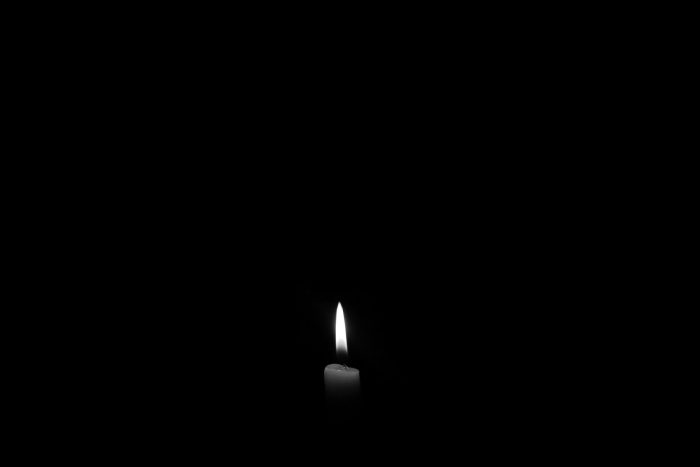by Carolyn Elliott, PhD, author of Existential Kink
The luminous dark is a paradox of course, and so are we humans.
You could say that the ego creates a sort of “spotlight” of grasping attachment focused on getting the “good stuff”: success, wealth, progress, admiration, love, etc.
Everything the conscious mind puts in this spotlight—were we to get it—would, we believe, gloriously prove that we’re finally and truly the ideal selves that we think we need to be in order to be okay.
The spotlight of conscious thought shines on an idealized version of ourselves and our lives, the vision of how things “should” be.
And you may notice that when you and your life and the people in it majorly or minorly fail to live up to the idealized standards of the spotlight, fail to give you enough winning or love or improvement or cash or adventure or respect . . .
. . . you might get flooded with all sorts of sensations, including anxiety, rage, humiliation.
Why? Because the spotlight is bright and hot, and it casts shadows.
In the shadows, there is also a kind of grasping attachment that mirrors what’s in the spotlight. In the shadows, there is a hot attachment to failure and humiliation and anxiety and rage.
The ego/conscious mind may think that it’s frightened of failure and humiliation (in matters of wealth, love, body, creativity, etc.), but fear and desire ARE IDENTICAL.
In fact, the conscious mind worries about all this “bad stuff” and thinks about how to avoid it, but that worry is secretly (shadowily) a kind of erotic caress, an obsessive dwelling with rapt fascination on the face of the very beloved failure and humiliation.
What I’m suggesting is: Just let failure and humiliation (and all the “bad stuff”—anxiety and scarcity and fat and wrinkles and pain and ultimately death itself) be the cherished beloveds that they already are to you.
Just let them be your open, known, sought-out, celebrated beloveds, instead of your secret, shamed ones.
Be infinitely willing to feel and experience all the bad stuff endlessly because a part of you already is infinitely willing anyway.
You don’t have to “try” to love all the fucked-up stuff in your life: the simple fact is that you already do love it, immensely.
All you need is honesty. Just be honest with yourself about the subtle erotic joy you get from dwelling on/fearing all the “bad things.”
Be honest about how exciting it is that you’ll definitely die, and in dying, you will totally fail to keep your ego projects in motion.
You’re a complete failure no matter what. A dead failure.
When you do this, the spotlight switches off.
You’re in total darkness. There’s no spotlight and no shadow— just a luminous dark as you enter the unknown of the present.
In this minute of the unknown present—you’re you as you are, your life is as it is, rich with the beloved “bad stuff” and also a dose of “good stuff.” And that is enough, with no improvements whatsoever.
The luminous dark comes when you find the courage to stop grasping after that idealized self-image, and instead for a minute just be the being that you honestly are, the one gleefully enraptured with desire-fear of the “bad stuff.”
“Hot damn, I am infinitely willing to feel every painful thing in the world! I’m the crazy, infinitely willing one!” That’s who you are, simply, in honesty, already.
Not when you try harder, or “do it right” or get Enlightened. Right now. You already get off on all your shadow stuff, you just haven’t let yourself know it yet.
This infinite willingness to be a completely un-ideal person in a completely un-ideal life lets your spirit land fully in incarnation on Earth (and by the way, incarnation is by definition “non-ideal” because it is manifest, and specific in space and time).
Landing fully, right here, right now, in incarnation, opens up the horizon of what philosopher Jacques Derrida called “the absolute future,” the future unconditioned by past patterns.
It is through the absolute future that magic comes in.
Turn off the spotlight. Turn on the luminous dark. Open to the absolute future.











Read 0 comments and reply